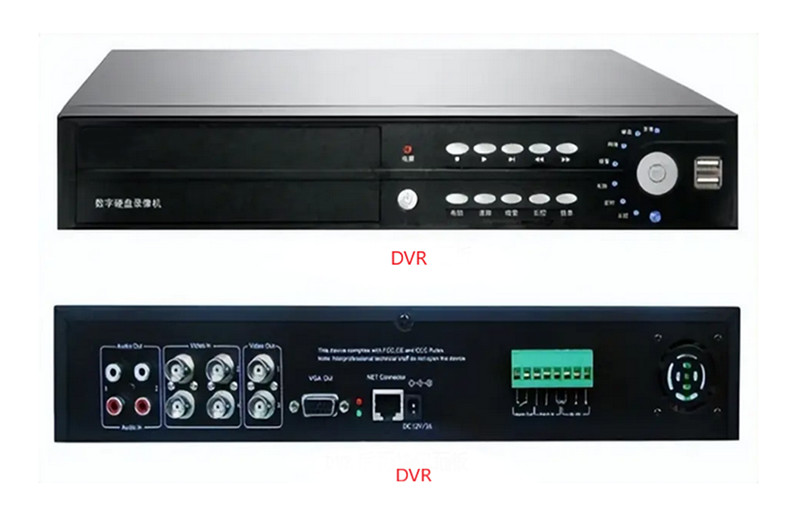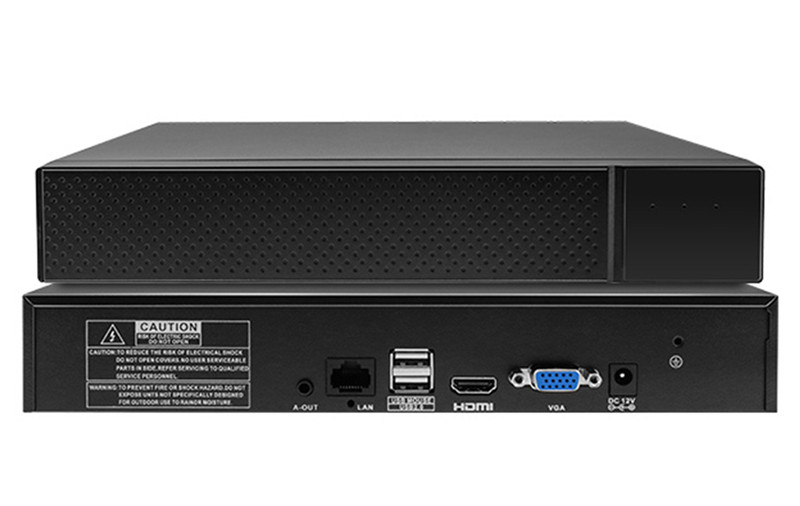In a CCTV surveillance system project, we often need to use video recorder. The most common types of video recorder are DVR and NVR. So, when installing, we need to select DVR or NVR. But do you know what the differences?
DVR recording effect depends on front-end camera and the DVR's own compression algorithm and chip processing capabilities, while the NVR recording effect depends mainly on the front-end IP camera, because the output of the IP camera is a digital compressed video. When the video signal reaches the NVR, it does not need analog-to-digital conversion and compression, just store, and only a few chips are required to complete the whole process.
DVR
DVR is also called digital video recorder or digital hard disk recorder. We used to call it a hard disk recorder. Compared to the traditional analog video recorder, it records video into a hard disk. It is a computer system for image storage and processing, with long-term video recording, remote monitoring and control image /voice functions.
DVR has a number of advantages, compared with traditional analog surveillance systems. DVR uses digital recording technology, which is far superior to analog in terms of image quality, storage capacity, retrieval, backup, and network transmission. In addition, DVR is easier to operate than analog systems, and support remote control.
NVR
IP cameras have become increasingly popular in recent years, as they have a number of advantages over traditional CCTV cameras. One of main advantages is that they can be connected to a network, which allows for remote viewing, management and easy to expand.
NVR’s full name is network video recorder, it is designed to receive, store and manage digital video streams from IP cameras. It must need to connect IP cameras, cannot work alone. NVR has a number of benefits over traditional DVR, including the ability to view and manage multiple cameras at the same time, and the ability to remotely access cameras from anywhere in the world through Ethernet. Thus realize the advantage of distributed networking.
If you are considering installing IP cameras, then an NVR is an essential piece of equipment. It will allow you to take full advantage of the benefits of IP cameras, and ensure that your system is fully functional and secure.
The difference between DVR and NVR
The main difference between DVR and NVR is the type of cameras they are compatible with. DVR only works with analog cameras, while NVR works with IP cameras. Another difference is that DVRs require each camera to be connected to the DVR using a coaxial cable, while NVRs can connect to IP cameras by wireless transmission or wired Ethernet cable.
NVR offers a number of advantages over DVR. First, they are much easier to set up and configure. Second, NVR can record at a higher resolution than DVR, so you'll get better quality image. Finally, NVR offers better scalability than DVR; you can easily add more cameras to an NVR system, while DVR system is limited by the number of input channels on the DVR.


Post time: Oct-13-2022

